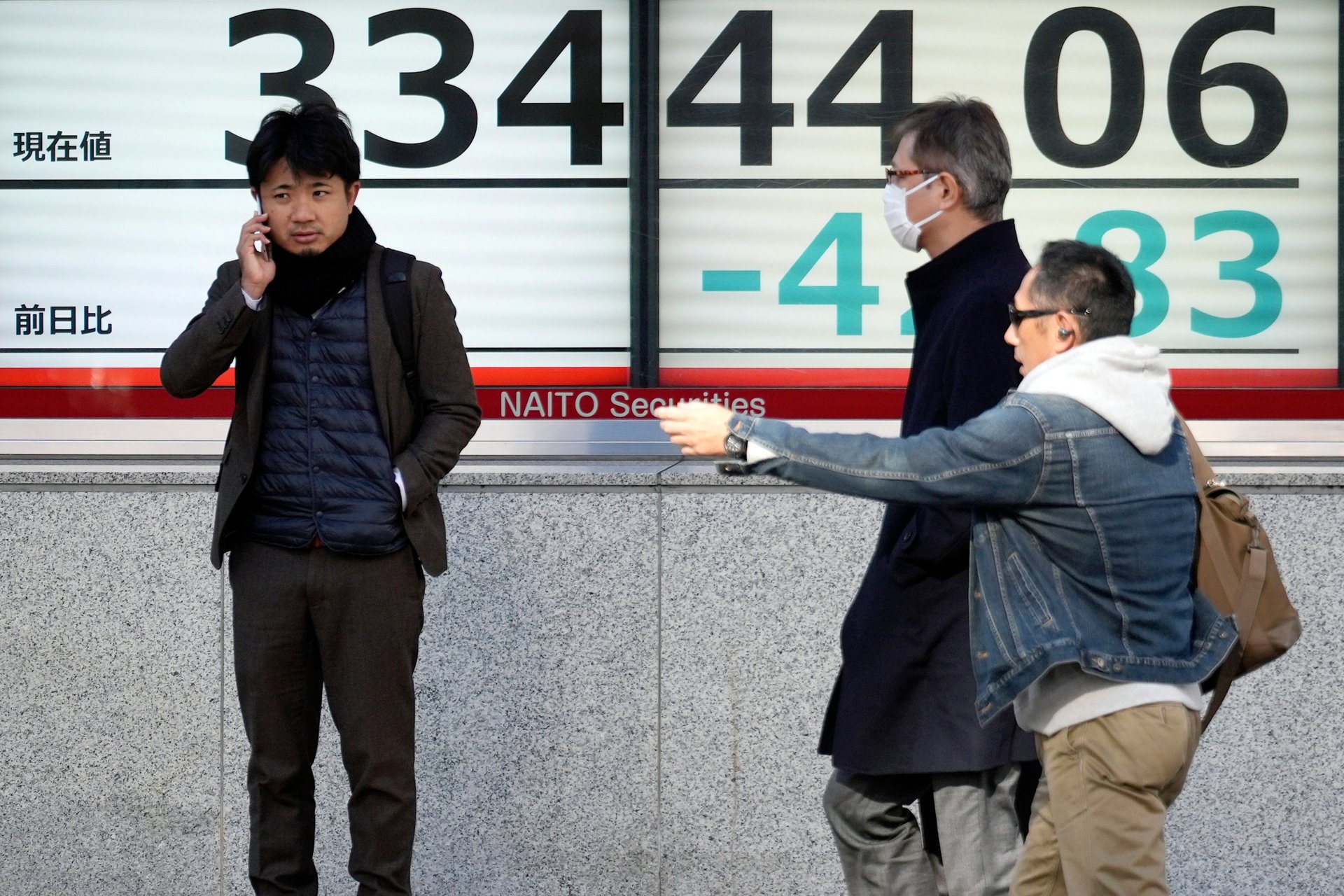Stock market today: Asian shares slip after Wall Street ends its best month of '23 with big gains
Asian shares have slipped after Wall Street closed out its best month of the year with big gains in November

HONG KONG (AP) — Asian shares declined on Friday even after Wall Street closed out its best month of the year with big gains in November.
Suggested Reading
U.S. futures rose while oil prices continued to drop despite the latest extension of OPEC’s production cuts. Even with continued cuts to output, other producers such as the U.S. are expected to be able to make up the difference, relieving pressure on prices.
Related Content
U.S. benchmark crude oil was down 9 cents at $75.87 a barrel in electronic trading on the New York Mercantile Exchange. It lost $1.90 on Thursday to $75.96 a barrel.
Brent crude, the international standard, dropped 24 cents to $80.62 a barrel.
Hong Kong’s Hang Seng dropped 0.5% to 16,950.14, hovered around a one-year low, and the Shanghai Composite index was down 0.4% to 3,017.19.
A private sector survey released Friday showed Chinese manufacturing activity unexpectedly expanded in November, marking the fastest growth in three months. That report by Caixin contradicted one released the day before that showed weak factory demand.
Tokyo’s Nikkei 225 index edged 11 points higher to 33,497.45 after a similar private-sector survey showed Japan’s manufacturing contracting in November at the fastest pace in nine months.
South Korea’s Kospi lost 1% to 2,508.86. Australia’s S&P/ASX 200 sank 0.2% to 7,071.30. India’s Sensex gained 0.6% and Bangkok’s SET fell 0.1%.
Thursday on Wall Street, the S&P 500 rose 0.4% to 4,567.80. The Dow jumped 1.5% to 35,950.89, with an assist from cloud-based software company Salesforce, which jumped 9.4% after it reported better-than-expected results and raised its outlook. Cloud-computing company Snowflake rose 7% after also giving Wall Street an encouraging financial forecast.
On the losing end, data storage company Pure Storage fell 12.2% after giving investors a disappointing revenue outlook.
The Nasdaq composite dropped 0.2% to 14,226.22.
The Dow rose 8.8% in November and the Nasdaq 10.7%.
The market marched steadily higher for much of November as investors grew hopeful that the Federal Reserve is finally done raising interest rates, which fight inflation by slowing the economy. Those hopes got more support with a report that the Fed’s preferred measure of inflation cooled last month.
Thursday’s report from the Commerce Department said prices were unchanged from September to October, down from a 0.4% rise the previous month. Compared with a year ago, consumer prices rose 3% in October, below the 3.4% annual rate in September. That was the lowest year-over-year inflation rate in more than 2 1/2 years.
Also Thursday, the Labor Department said slightly more Americans filed for unemployment benefits last week, but the overall number of people in the U.S. collecting benefits rose to its highest level in two years. The report shows that the labor market remains strong, but is showing signs of softening.
The Fed’s aggressive rate hike policy pushed its benchmark interest rate from near zero in 2022 to its highest level in two decades by the middle of 2023. The goal has been to tame inflation back to the Fed’s target rate of 2%.
Wall Street is betting that the central bank will continue to hold rates steady at its December meeting and into early 2024, when it could start considering cutting interest rates. Fed officials have hinted at those possibilities, while also saying any future moves will be based on economic data.
The latest data on economic growth and consumer confidence have also raised hopes that the Fed will achieve its sought-after “soft landing,” which involves cooling the inflation without throwing the economy into a recession.
Treasury yields moved higher, with the yield on the 10-year Treasury, which influences mortgage rates, slipping to 4.33% from 4.34% late Thursday.
In currency dealings, the dollar slipped to 148.02 Japanese yen from 148.20 yen. The euro rose to $1.0904 from $1.0890.
___
AP Business Writers Damian J. Troise and Alex Veiga contributed.